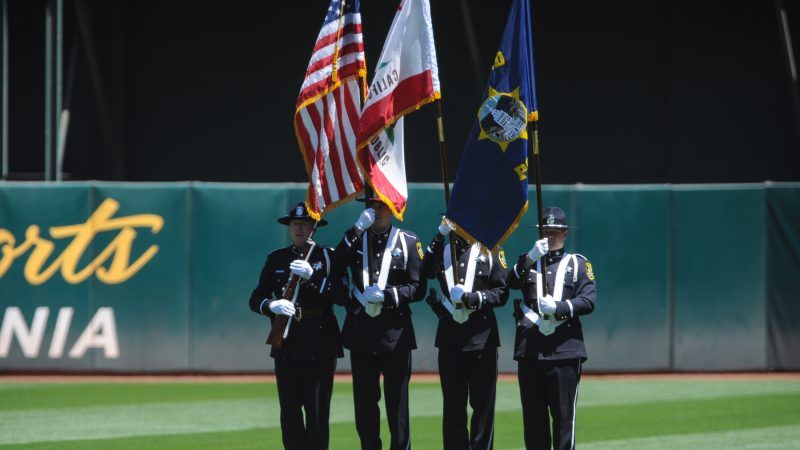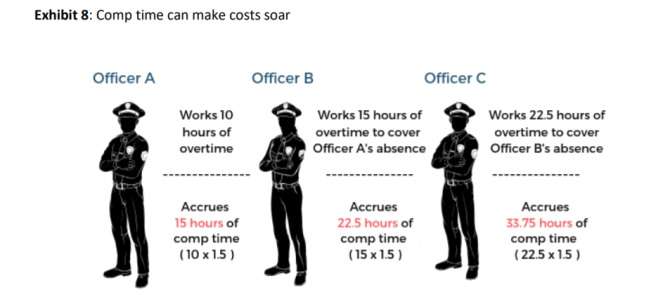How Oakland Cops Gamed the System To Earn $30 Million in Overtime Pay
A new audit reveals how poor oversight and structural problems allowed one Oakland cop to earn $2.5 million in overtime pay in five years.

When Oakland, California, police officers are needed at Golden State Warriors basketball games and other special events, Malcolm Miller is the officer in charge of making those assignments. Often, he assigns himself.
As a result, Miller has become one of the highest paid officers in the department. He's earned nearly $2.5 million over the past five years—most of it overtime pay—according to data collected by Transparent California, a watchdog group. Is he abusing his position to cash in, or is he filling important assignments that no one else wants? The answer is unknown, a new audit of the Oakland Police Department claims, because "the special event planning and staffing process is not documented and management provides limited oversight" even though those special events account for 42 percent of overtime hours worked last year.
Miller did not return requests for comment, but he's hardly the only officer to take advantage of poor oversight and a general lack of accountability. According to the audit, 217 officers worked roughly 520 hours of overtime last year, helping to cost the department more than $30 million in overtime pay—about twice as much as had been budgeted. Over the past four years, overtime expenditures have ranged from $28 million to $31 million.
Proper documentation of overtime work was lacking in 83 percent of cases, the auditors found. One officer was paid for more than 2,600 hours of overtime—equal to 108 days of round-the-clock work—in just a single year.
The audit also found that the department "cannot efficiently reconcile between the scheduling and the payroll systems." That is essential to ensuring that paid overtime is accurate, auditors note.
Having officers working that much overtime comes with an obvious cost to taxpayers, but also reduces the quality of police work.
"Workload fatigue can lead to poorer perceived health, increased chance for injury, and illnesses," auditors wrote. "Specifically, in high-stress, unpredictable environments like police work, fatigue, in turn, can lead to a greater chance for poor decision-making, which may have health and safety consequences for officers or for the community that they serve."
Keeping overtime hours and costs under control isn't difficult to do. The audit notes that one police captain ensured his unit came in under budget merely by maintaining "an excel spreadsheet with the ability to track and calculate daily overtime expenditures." Such basic documentation and accountability measures appear to be the exception rather than the rule.
Perhaps the most stunning part of the audit is the explanation of a department-wide policy that allows Oakland cops to accrue 1.5 hours of "comp time" for every hour of overtime worked. When an officer cashes in that comp time and isn't working, other officers have to work overtime to fill the gap. That creates a cascade of additional overtime pay—10 hours of overtime creates 15 hours of comp time, which some other cop has to work, earning 22.5 hours of comp time (if they're also working overtime), and so on.

The East Bay Times notes that overtime pay has been an ongoing issue for the Oakland Police Department. After earlier audits revealed similar problems with excessive overtime work and pay, the department hired 87 additional officers and abolished a rule requiring that officers do overtime work.
But the audit makes clear that systemic issues remain unaddressed—and cops like Miller continue to take advantage. "The City has not addressed any of the questionable compensation practices identified" in a 2015 audit, according to the new audit.
And what about that one police captain who tracked his unit's overtime pay with a spreadsheet?
"The tool was never adopted by other organizational units," the audit reports, "and is no longer being utilized by the captain due to time constraints."


Show Comments (73)